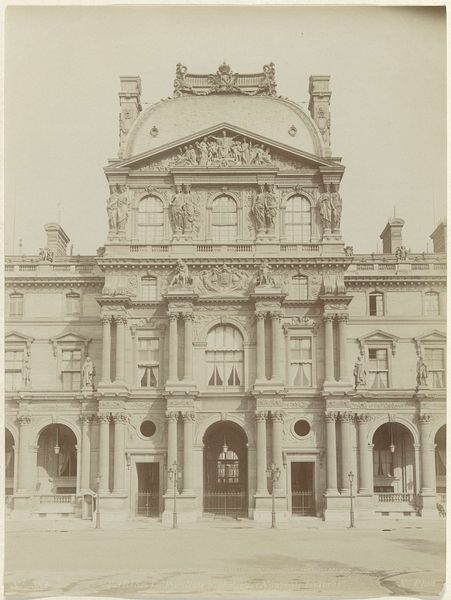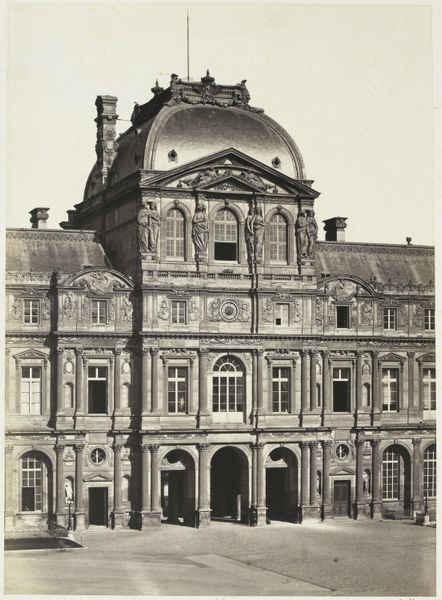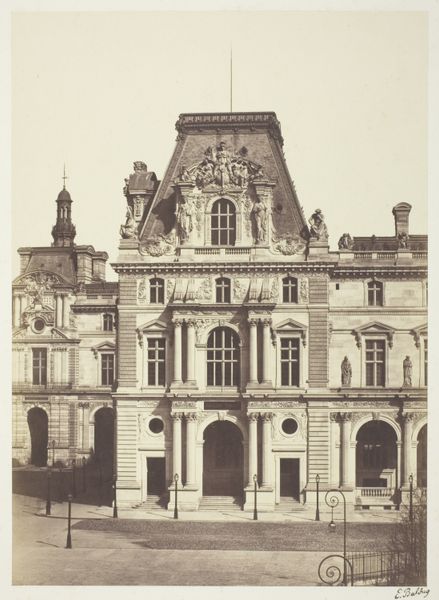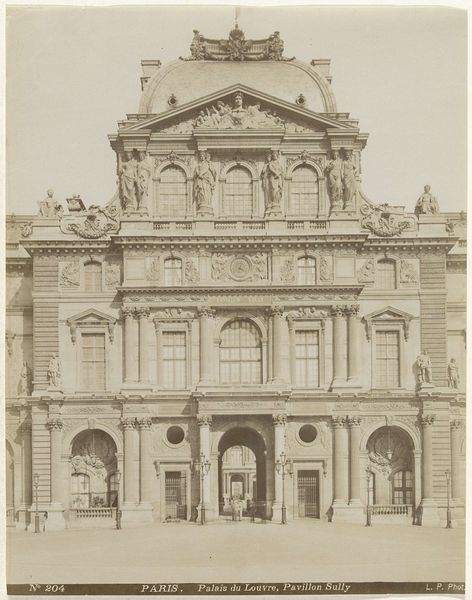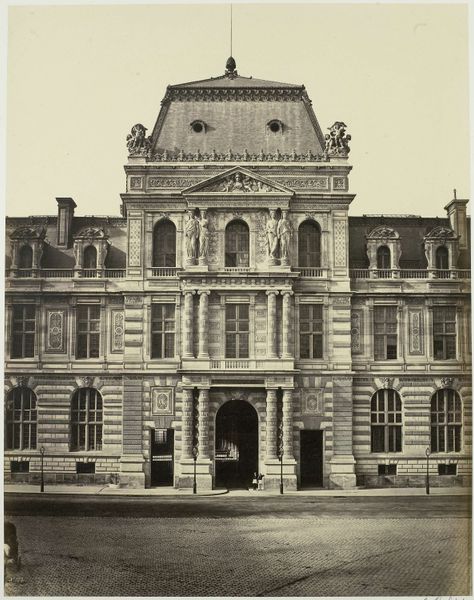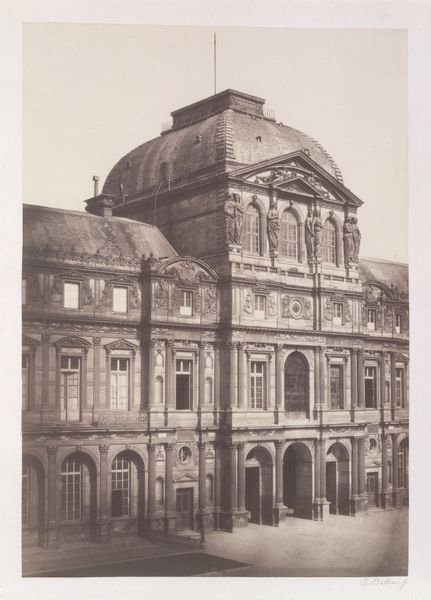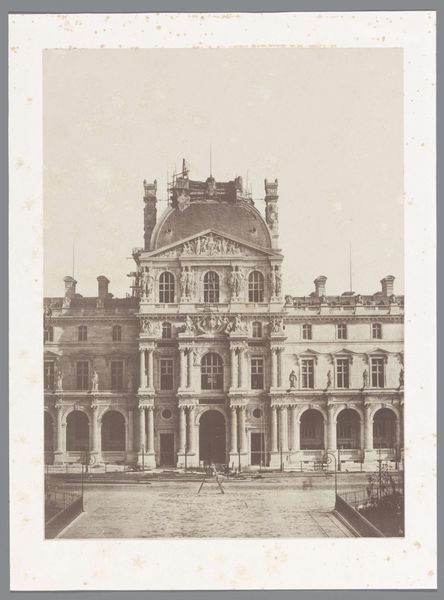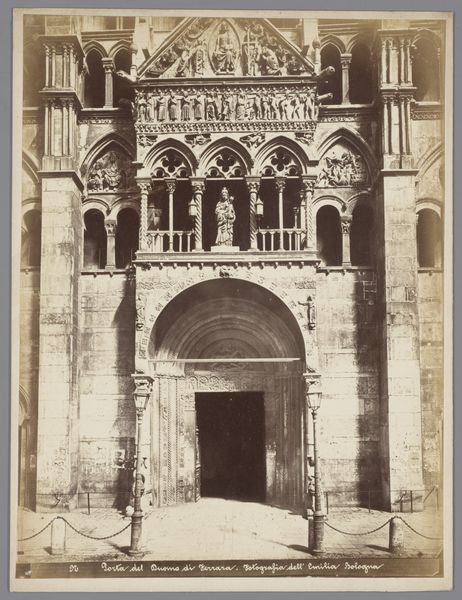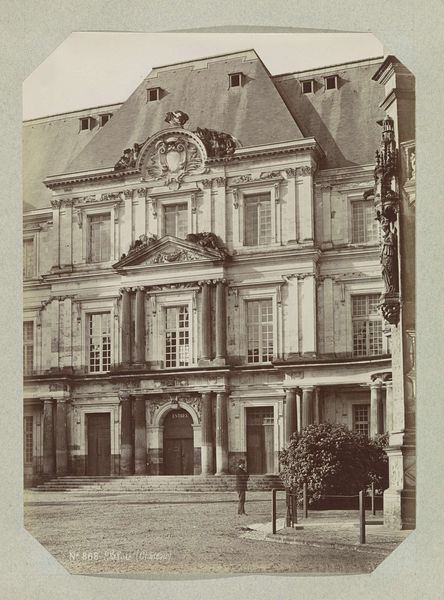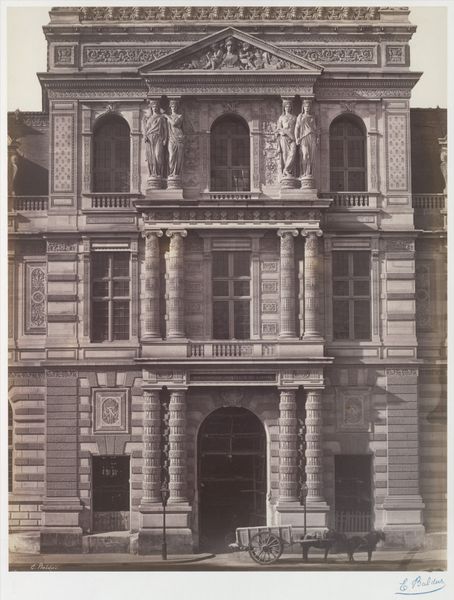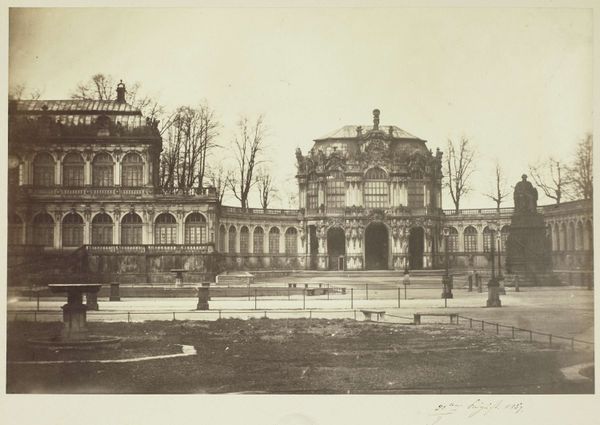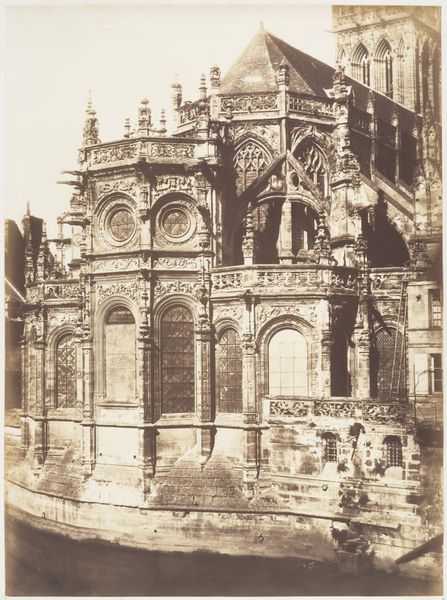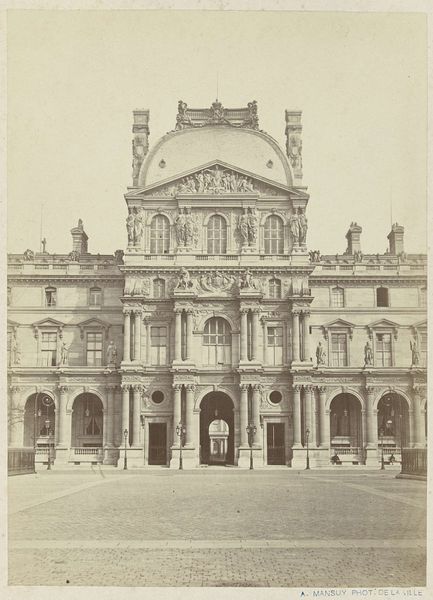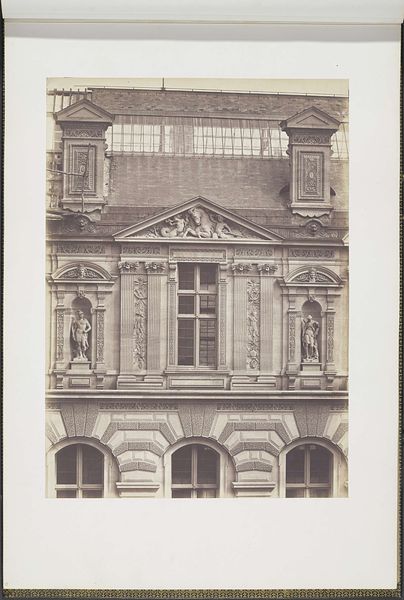
Gipsmodellen voor beeldhouwwerken op het Palais du Louvre: links "L'Europe" door Joseph-Adolphe-Alexandre Walcher en rechts "Le Printemps" door Adrien Fourdrin c. 1855 - 1857
0:00
0:00
edouardbaldus
Rijksmuseum
print, photography, architecture
#
print photography
#
neoclacissism
# print
#
photography
#
cityscape
#
architecture
Dimensions: height 382 mm, width 560 mm
Copyright: Rijks Museum: Open Domain
Edouard Baldus created this photograph of plaster models for sculptures on the Palais du Louvre. Baldus, working in the mid-19th century, documented the architectural transformations of Paris under Napoleon III. Here, the allegorical sculptures “Europe” and “Spring” flank the Louvre's facade, embodying the era’s grand aspirations. These sculptures, like the architecture itself, tell a tale of power and cultural identity. What is revealed, and what is concealed, through the choice of classical forms to represent modern ideals? The clean lines of Baldus’s photograph emphasize the Louvre as a stage for projecting French identity and power. Consider how these sculptures, meant to represent universal concepts, inevitably reflect the biases and values of their time. They invite us to reflect on the narratives embedded in stone and photograph, and how these forms shape our understanding of history and belonging.
Comments
No comments
Be the first to comment and join the conversation on the ultimate creative platform.
